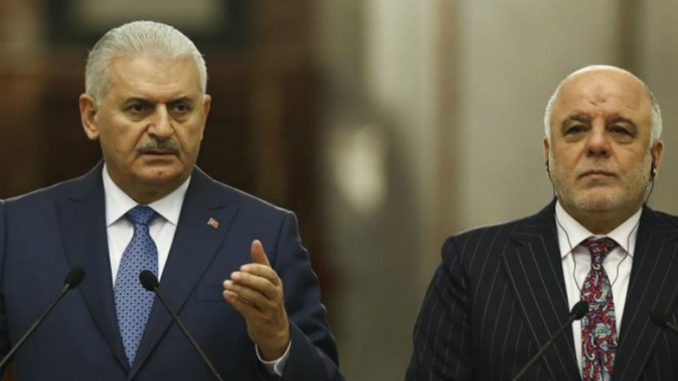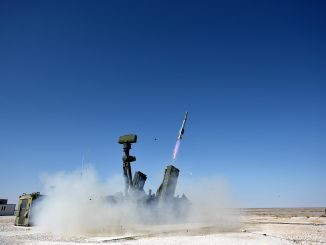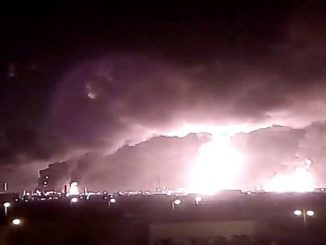
The tension between Iraq and Turkey increased in the past few weeks, as Turkey’s prime minister’s visit and messages to the Iraqi government weren’t enough for them to stop calling Turkey an invasion force.
The military base in Bashiqa, which Turkey established in March 2015 near the Iraqi city of Mosul in order to train local forces to fight against ISIS, is apparently the source cause of the tension.
The presence of around 500 Turkish troops has been a heated topic between Ankara and Baghdad since December 2015. The issue turned into a serious political crisis and even talk of war between the two neighbors.
They summoned their respective ambassadors in October 2016 after Baghdad described Turkish troops in the country as “hostile occupying forces,” and the Iraqi Parliament called for the withdrawal of the troops, which were actually deployed there with the authorization of Al-Abadi’s government.
The Iraqi media is portraying Turkish role in Mosul as sectarian or anti-Shiite, which is a blatant lie. As a matter of fact, the Turkish military activities have never been sectarian.
Turkey’s intervention in Iraq was based on two goals. The first one is opposing Iran’s plans for the region.
Iran was able to force control on Iraq after Saddam’s defeat by empowering the Shiite armed militias and planting Iraqi politic figures that rule the country according to Iran’s plans.
Iran is supporting sectarian militias in Iraq and has weakened the central authority. Tehran had used this tactic earlier in Lebanon.
officials in Ankara contend that Iran seeks to resuscitate the Shiite version of the ancient Persian Empire. In March 2015, President Recep Tayyip Erdogan of Turkey accused Iran of fighting the Islamic State in Iraq only to replace it. Turkey also says that Iran’s mobilization of Shiite militias from Lebanon, Iraq and Afghanistan to protect the rule of a minority sect, the Alawites, over a majority-Sunni population in Syria has worsened sectarian tensions, giving Sunni extremists a potent recruitment tool.
The other goal in preserving Turkey internal security by fighting the terrorist organizations, ISIS in addition to PKK and its branches, in Syria and Iraq.
Therefore, Turkey took part in Mosul’s battle against ISIS and sought to establish connection channels with the Kurdish government to contain PKK’s threat and plans.
Turkish PM recent visit to Iraq
Turkish Prime Minister Binali Yıldırım’s first official visit in 2017 was to Iraq, where he met with his Iraqi counterpart Haider Al-Abadi to have talks on several issues.
Following the meeting between Yıldırım and Al-Abadi, two different statements came from both sides. The Iraqi prime minister said a deal was reached over the withdrawal of Turkish troops from Bashiqa. The Turkish prime minister, without referring to such a deal, said the two countries agreed to resolve the matter in a friendly way. A few days after the visit, Turkey’s Defense Minister Fikri Isık said the status of Turkish troops at Bashiqa will be reassessed with Iraqi officials once the area has been cleared of Daesh terrorists.
Yıldırım also visited Erbil to meet with Kurdistan Regional Government (KRG) President Massoud Barzani after visiting Baghdad. In Yıldırım’s Iraq visit, both the KRG and the Iraqi government reiterated their support for Turkey in the fight against the PKK. Life will become more difficult for the PKK when Turkey and Iraq normalize relations, as the terrorist organization was taking advantage of the strained relations between the two neighbors.
The existence of the terrorist Kurdistan Workers’ Party (PKK) is a fundamental threat for both Turkey and Iraq. Close cooperation between them, and with the Kurdistan Regional Government (KRG) in Iraq, is required to fight against the PKK, which has been using Iraqi territory as its main headquarters and trying to expand its influence in Sinjar province.
Iraq’s responce
However, Iraqi government’s reaction to this visit wasn’t as expected.
Iraqi Prime Minister Haider al-Abadi stressed last Tuesday that neighboring Turkey should pull its forces out of Iraq, otherwise Ankara-Baghdad relations will not see an improvement, in a clear hint to intervention by Iran after Binali’s visit was considered positive at first.
In addition, Iraq’s ambassador to Ankara said Iraq will send a defense delegation to Turkey only when the host country is prepared to discuss the logistics of the withdrawal of Turkish troops from Bashiqa.
Iraq is not interested in an invitation from the Turkish defense minister to his counterpart if the former only wants to talk about “general issues,” Ambassador Hashim al-Allawi said in an interview with Turkish Hurriyet.
“If the invitation is to talk about the practical arrangements to withdraw forces from the Bashiqa camp, then the visit is likely to happen,” Allawi said. “But if we talk about an invitation to discuss general issues, I am not sure that that will happen. We need to show that we are serious about implementing the agreements the two prime ministers have and the relevant articles of the joint declaration.”
He added that the next few months will be critical to move in this direction and create a “positive environment.”
Anyway, Turkey and Iraq are interdependent neighbors that need to cooperate on several issues such as energy and security. If necessary, for the time being they should be able to agree to disagree on Bashiqa. While the region is going through critical days, the peace and stability at their doorsteps and in the Middle East are of great importance to both Iraq and Turkey.



